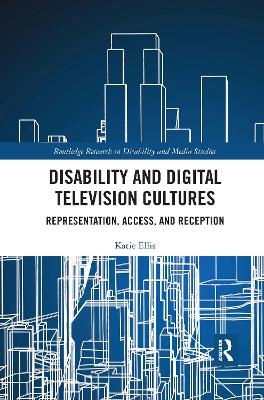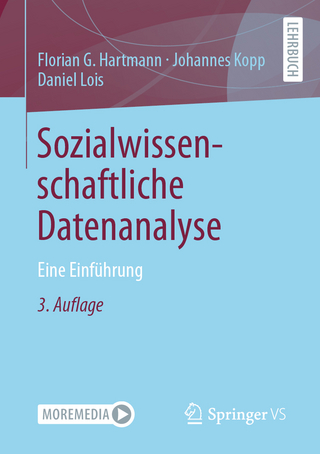
Disability and Digital Television Cultures
Routledge (Verlag)
978-0-367-66271-4 (ISBN)
- Titel z.Zt. nicht lieferbar
- Versandkostenfrei innerhalb Deutschlands
- Auch auf Rechnung
- Verfügbarkeit in der Filiale vor Ort prüfen
- Artikel merken
Television, as a central medium of communication, has marginalized people with disability through both representation on screen and the lack of accessibility to this medium. With accessibility options becoming available as television is switched to digital transmissions, audience research into television representations must include a corresponding consideration of access. This book provides a comprehensive and critical study of the way people with disability access and watch digital TV. International case studies and media reports are complimented by findings of a user-focused study into accessibility and representation captured during the Australian digital television switchover in 2013-2014. This book will provide a reliable, independent guide to fundamental shifts in media access while also offering insight from the disability community.
It will be essential reading for researchers working on disability and media, as well as television, communications and culture; upper-level undergraduate and postgraduate students in cultural studies; along with general readers with an interest in disability and digital culture.
Associate Professor Katie Ellis is Senior Research Fellow in Internet Studies, convener of the Curtin University Critical Disability Research Network and Deputy Director of the Centre for Culture and Technology at Curtin University. Her research explores the social and cultural dimensions of disability, television, and digital and networked media, extending across both issues of representation and active possibilities for social inclusion. She has authored and edited ten books and numerous articles on the topic, and is series editor of Routledge Research in Disability and Media Studies. Her most recent books include The Routledge Companion to Disability and Media with Gerard Goggin and Beth Haller, and Manifestos for the Future of Critical Disability Studies with Rosemarie Garland Thomson, Mike Kent and Rachel Robertson.
Acknowledgements
Chapter 1: Introduction
Part One Representation
Chapter 2: Screening stereotypes or cultural accessibility: stigma and the representation of disability on television
Chapter 3: Broadening definitions: A content analysis of disability on Australian television drama
Chapter 4: Culturally accessible online video: bringing television’s shared-ness online
Chapter 5 Collective intelligence: Disability, Game of Thrones
Part 2 Access
Chapter 6: Digital diversity
Chapter 7: Audio description
Chapter 8: Captions
Chapter 9: Interpretive flexibility
Chapter 10: Conclusion
| Erscheinungsdatum | 01.10.2020 |
|---|---|
| Reihe/Serie | Routledge Research in Disability and Media Studies |
| Verlagsort | London |
| Sprache | englisch |
| Maße | 152 x 229 mm |
| Gewicht | 400 g |
| Themenwelt | Sozialwissenschaften ► Kommunikation / Medien ► Medienwissenschaft |
| Sozialwissenschaften ► Soziologie | |
| ISBN-10 | 0-367-66271-X / 036766271X |
| ISBN-13 | 978-0-367-66271-4 / 9780367662714 |
| Zustand | Neuware |
| Haben Sie eine Frage zum Produkt? |
aus dem Bereich


